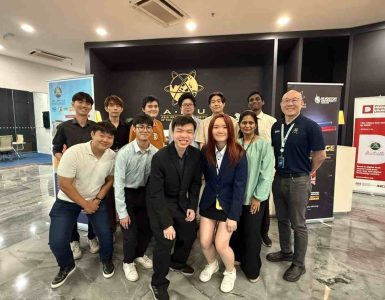By Senator Idris Jala, Minister in Prime Minister’s Department & Chief Executive Officer PEMANDU
Under the 2012 Budget, the Government and Economic Transformation Programmes, including the Strategic Reform Initiatives, continue to receive strong government support and financial allocation. They are also the forerunners to the National Transformation Policy 2011-2020 as announced by the Prime Minister this evening.
It is heartening to note that despite global uncertainties, the 2012 GDP growth is expected to be 5.0 to 6.0 per cent, supported by private and public investments which are expected to increase by 15.9 per cent and 7.0 per cent respectively.
With total revenue increasing by 1.9 per cent, our fiscal deficit is set to improve to 4.7 per cent in 2012 from 5.4 per cent in 2011. This provides the economy with greater fiscal space to deal with contingencies, in light of the global economic challenges.
Economic Transformation Programme
In conjunction with the on-going Corridors and Cities labs, we are pleased that the government will be providing RM978 million to accelerate the development of the five regional corridors. For example, the development of the Johor-Bahru-Nusajaya coastal highway and the Samalaju water supply projects will be pivotal to catalyse domestic and foreign investments in education, tourism and wholesale and retail as well as electrical and electronics manufacturing in the respective corridors.
For the Financial Services NKEA, our efforts to make Kuala Lumpur a global Islamic financial hub also received a huge boost with tax deduction on expenses incurred for sukuk wakala for a three-year period from 2012 as well as the extension of income tax allowance for non-ringgit sukuk issuance and transaction for further three years up to 2014. In addition, the proposed listing of Felda Global Ventures Holding (FGVH) on Bursa Malaysia by mid-2012 will increase equity market liquidity.
The Tourism NKEA will benefit from the new pioneer status for investment in four and five-star hotels with tax exemption of 70 per cent or investment tax allowance of 6o per cent for five years. This is further supported by the formation of the Malaysia Healthcare Travel Council to promote and develop Malaysia as the main destination for healthcare services in this region.
Strategic Reform Initiatives
As proposed by the International Standards and Liberalisation SRI, 17 services subsectors will be liberalised in phases in 2012. This covers private hospital services; medical and dental specialist services; architectural, engineering, accounting and taxation, and legal services; courier services; education and training services; and telecommunications services. In these subsectors, up to 100 per cent foreign equity participation will be allowed to spur greater competition and higher standards.
The proposal to increase compulsory retirement age from 58 to 60 in the civil service is also in line with the recommendation of the Human Capital Development SRI.
Government Transformation Programme
Under the new Cost of Living NKRA, focus will be given to both short-term and long-term measures to strengthen production of main food commodities, improve the distribution chain via an additional 82 Kedai Rakyat 1Malaysia and 30 units of Agro Bazaar Kedai Rakyat, as well as extend and promote the Menu Rakyat 1Malaysia to 3,000 operators by end 2012.
This is supplemented by a one-off cash assistance of RM500 for households with monthly income of RM3,000 and below, schooling assistance of RM100 for all primary and secondary students from Year 1 to Form 5 as well as RM200 book voucher for all Malaysian students in public and private local institutions of higher learning, matriculation and Form 6 students. Consolidated, these initiatives will benefit 3.4 million households and 6.6 million students nationwide at a total cost of RM2.59 billion.
Rural Basic Infrastructure continues to be given emphasis with a RM5 billion allocation in 2012. Of this, RM1.8 billion is for the laying of 2,749 km of rural roads to benefit 1.76 million rural Malaysians, RM2.1 billion is allocated to provide clean water supply to 200,000 houses while RM1.1 billion will go towards supplying electricity to 39,000 rural houses, especially in Sabah and Sarawak.












